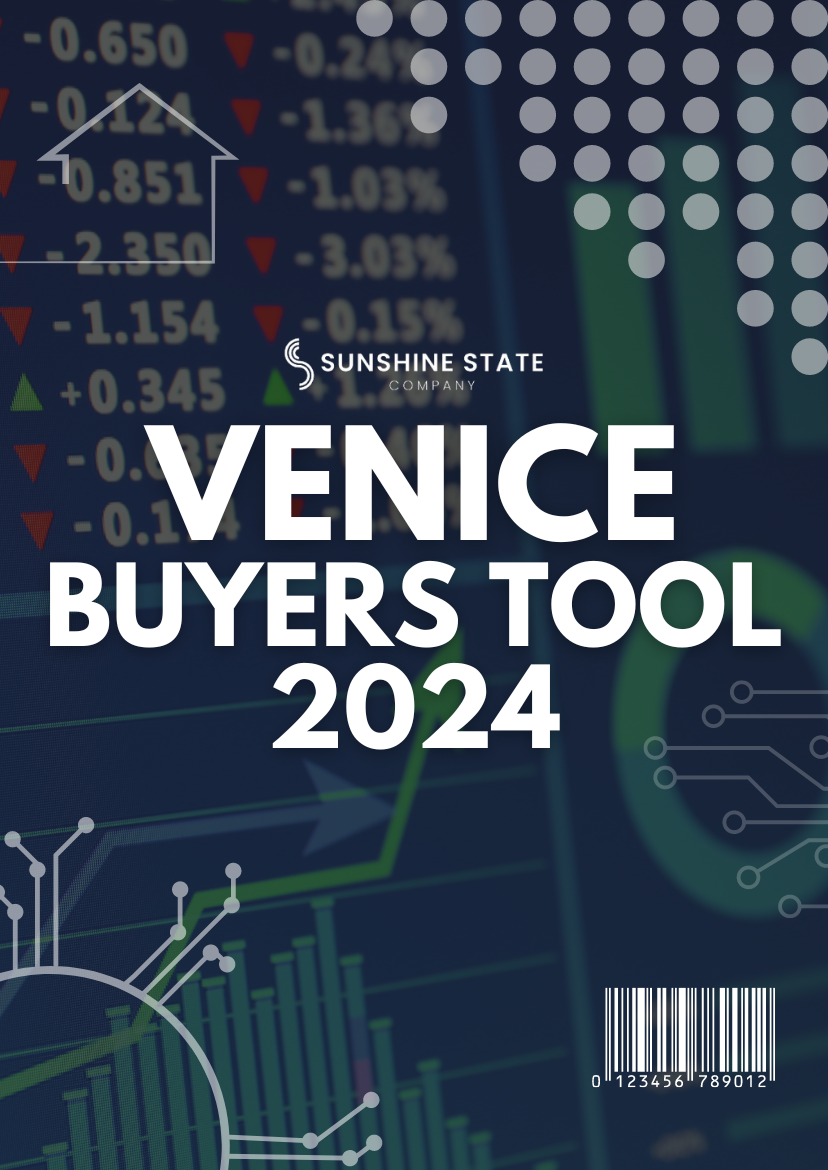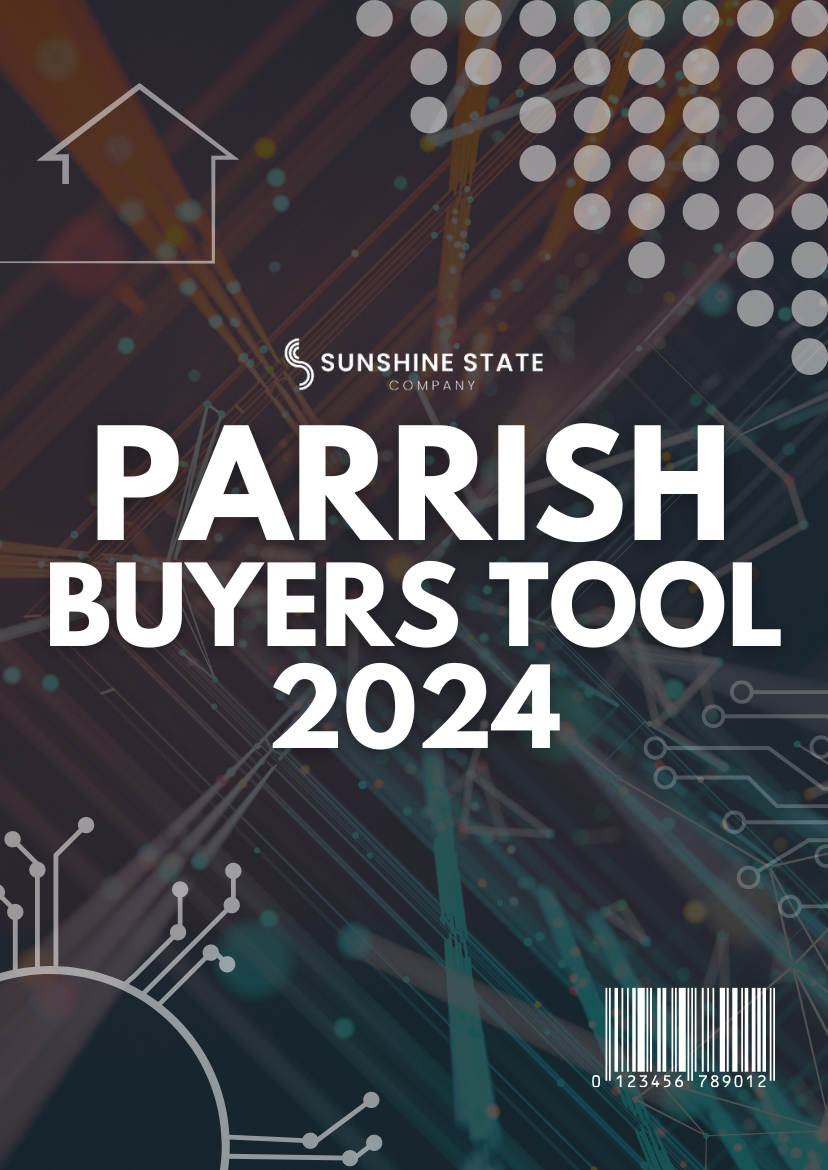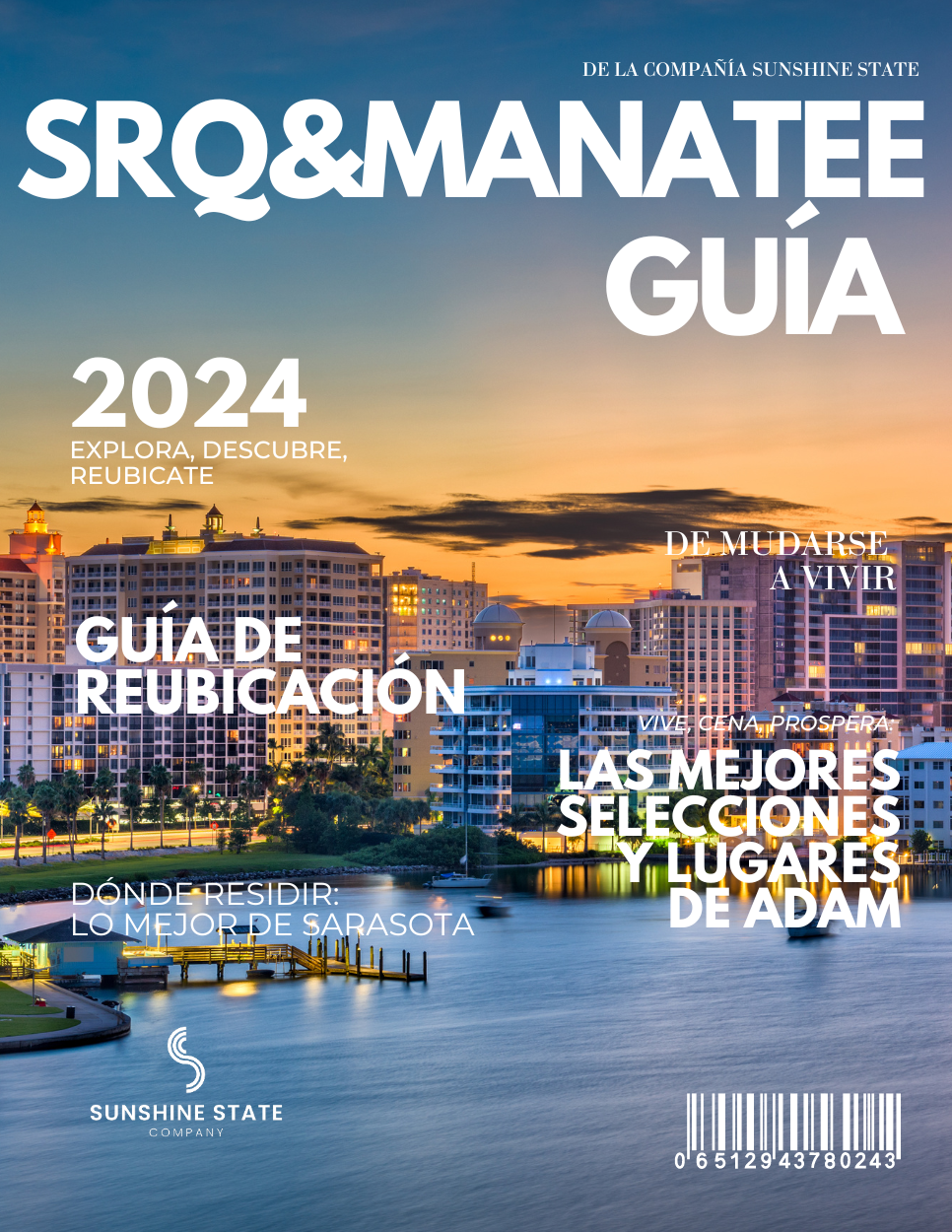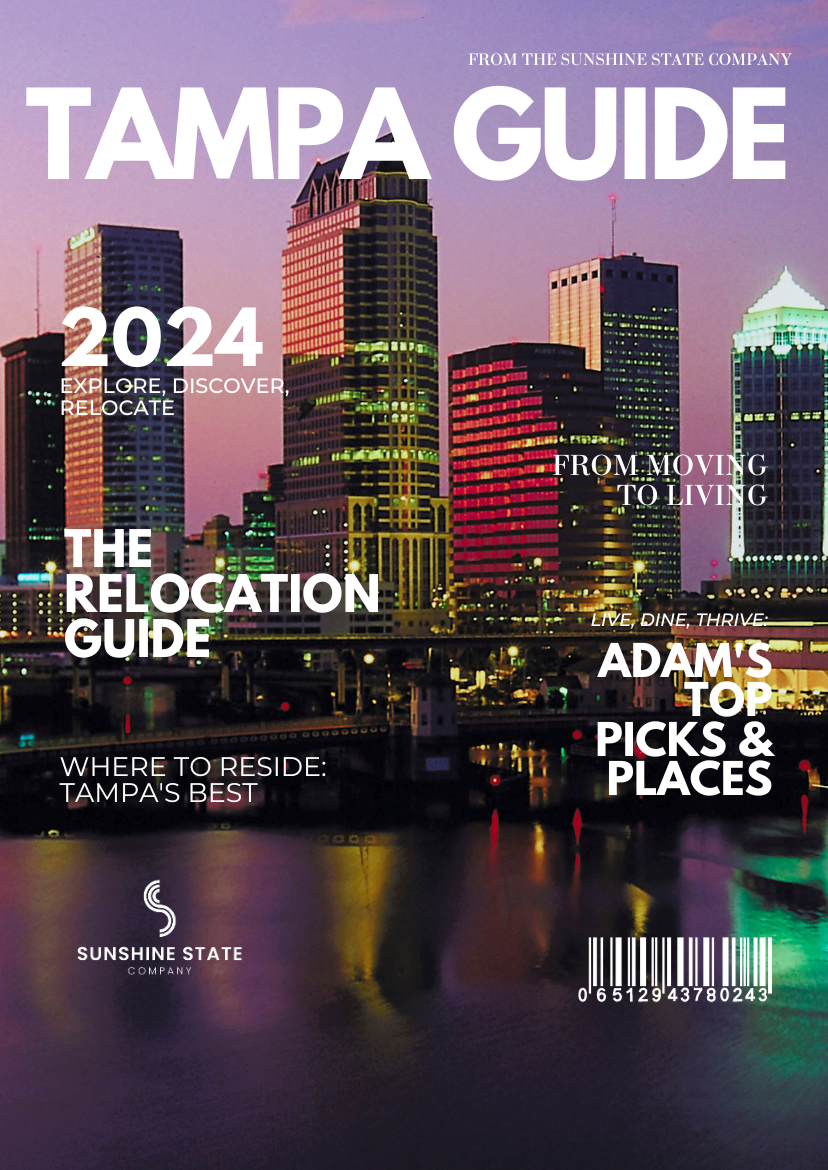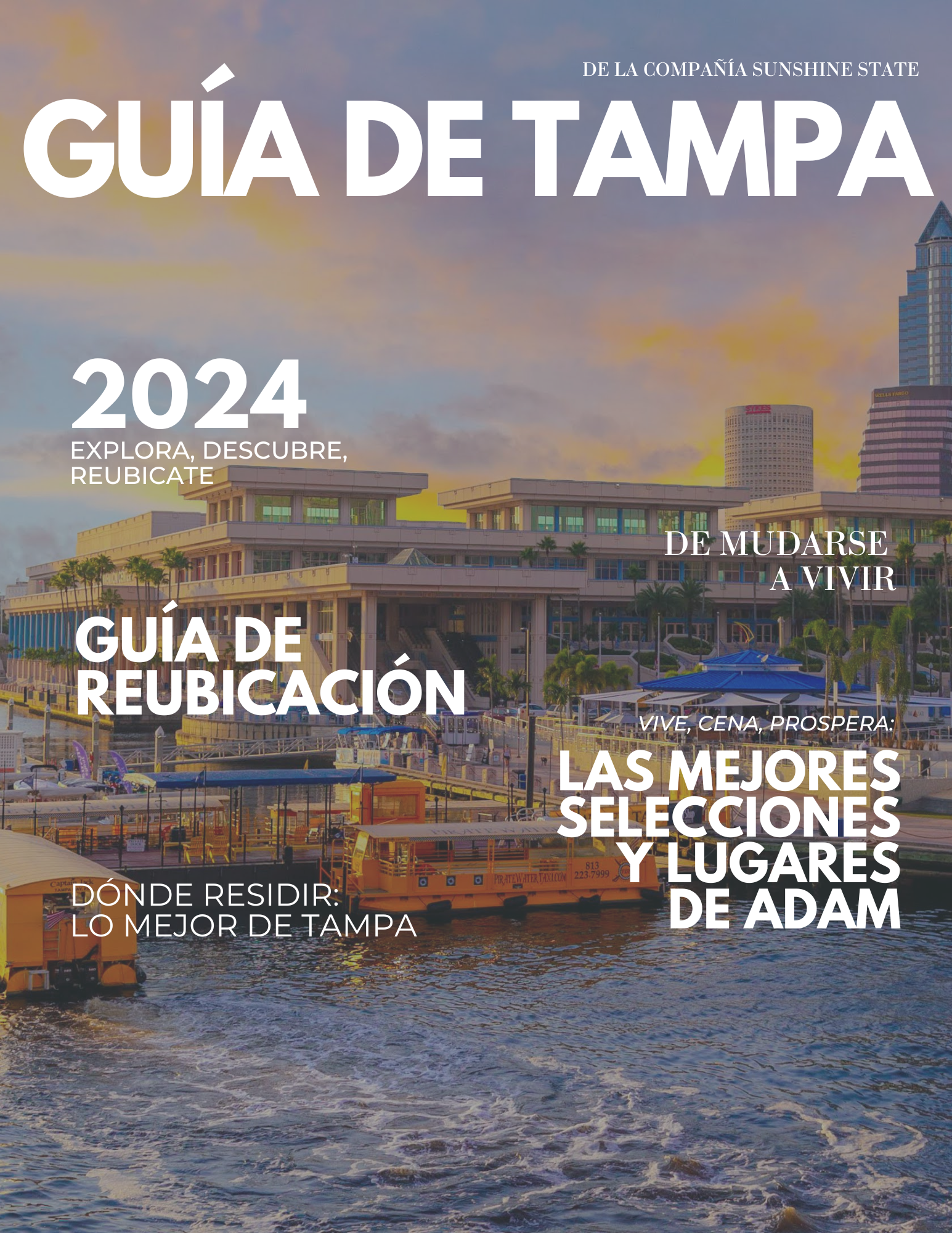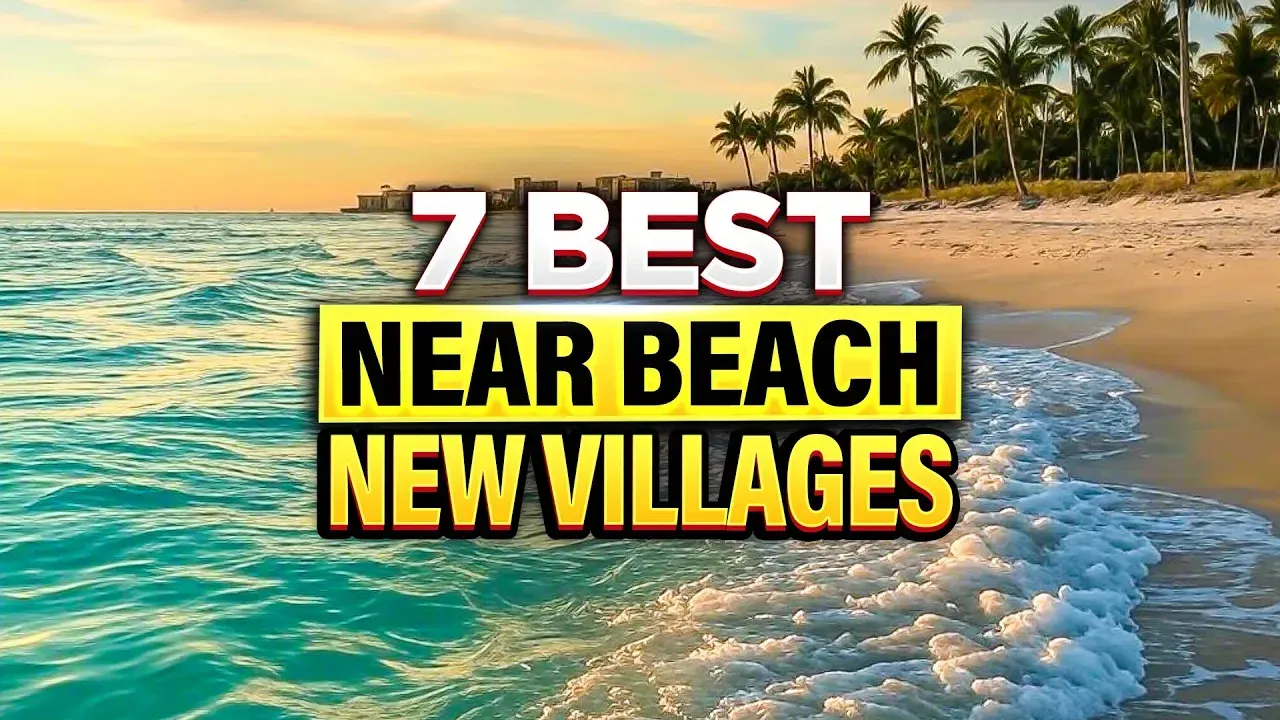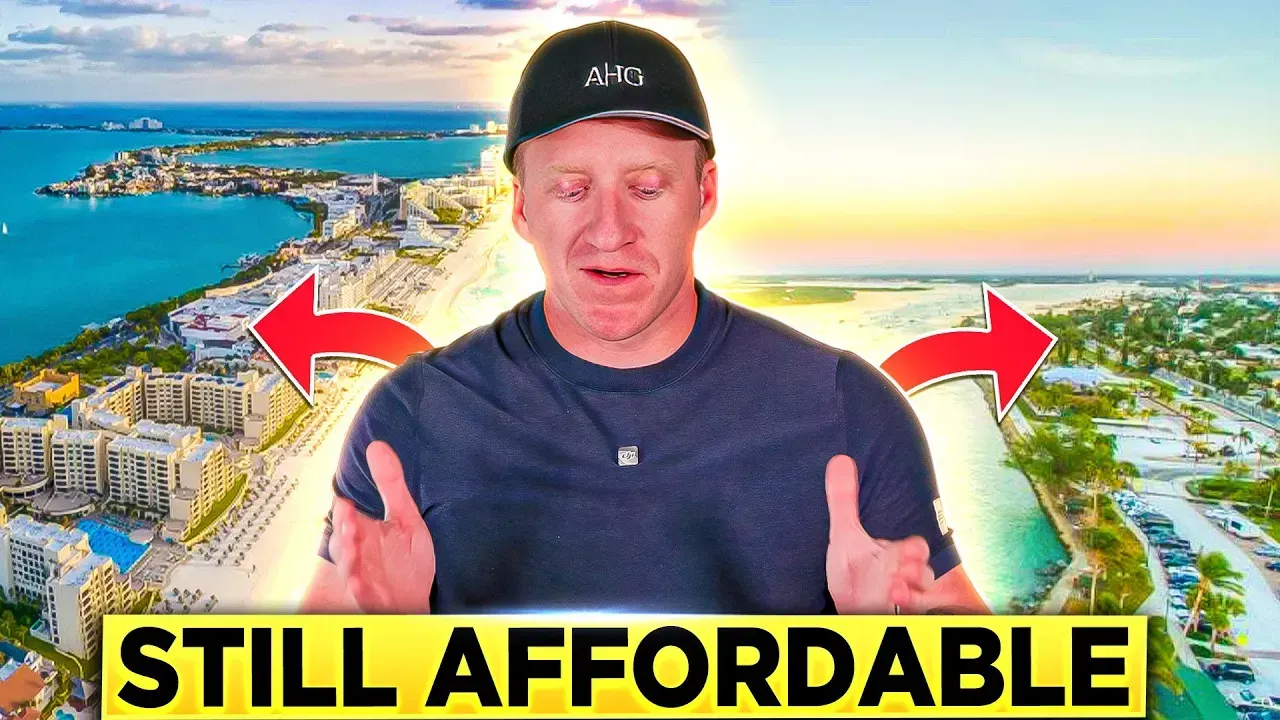This blog article is derived directly from our YouTube video (featured at the bottom)
Today, like the title suggests, I'm going to run you through a study that came out that's about buyer intent in the state of Florida. But more importantly, I'm going to run you through that study quickly. The second part of this video, I really want you to try to stick around for this one if you have the time, is that I'm going to run you through a thought exercise that I created this week that I've been really ruminating on a lot, that I think if looked at the right way, could really divide a ton of what Florida is metro versus metro. So I really tried to pack as much value and my opinion as I possibly could in this video. I mean, I hope you see it that way.
- Preface / Study
- The List
- #1 Tampa, Florida
- #2 Orlando, Florida
- #3 Sarasota, Florida
Preface / The Study
Okay, so a study came out this week that I was reading through that was all about home shopper intent. So they were focused on the search, creating a popularity bias versus the actual purchase themselves. So these people actually kind of put their money where their mouth was. This was more interest level. And so if you bear with me for a second, I want to take you through a journey of this study. And then the meat of the video, there's been a topic that I've been kind of working through this week that I want to see if I can add you some value by explaining an interesting premise that gives you a nice way of dividing different pieces of the state of Florida.
So study-wise, there are clearly most things, the consensus is that there are fewer buyers in the market simply. But of the buyers still in the market, which is a fair amount, record numbers are searching to leave their current metro. So they're in a metro and IP address searching outside of their current metro. Some of the major index websites, Redfin and Zillow and realtor.com, et cetera, record numbers in mostly January, a little February of people outside of the current metro. A quarter of the total population of buyers are not looking within the metro they live in currently, which is three to five percentage points above any comparable period.
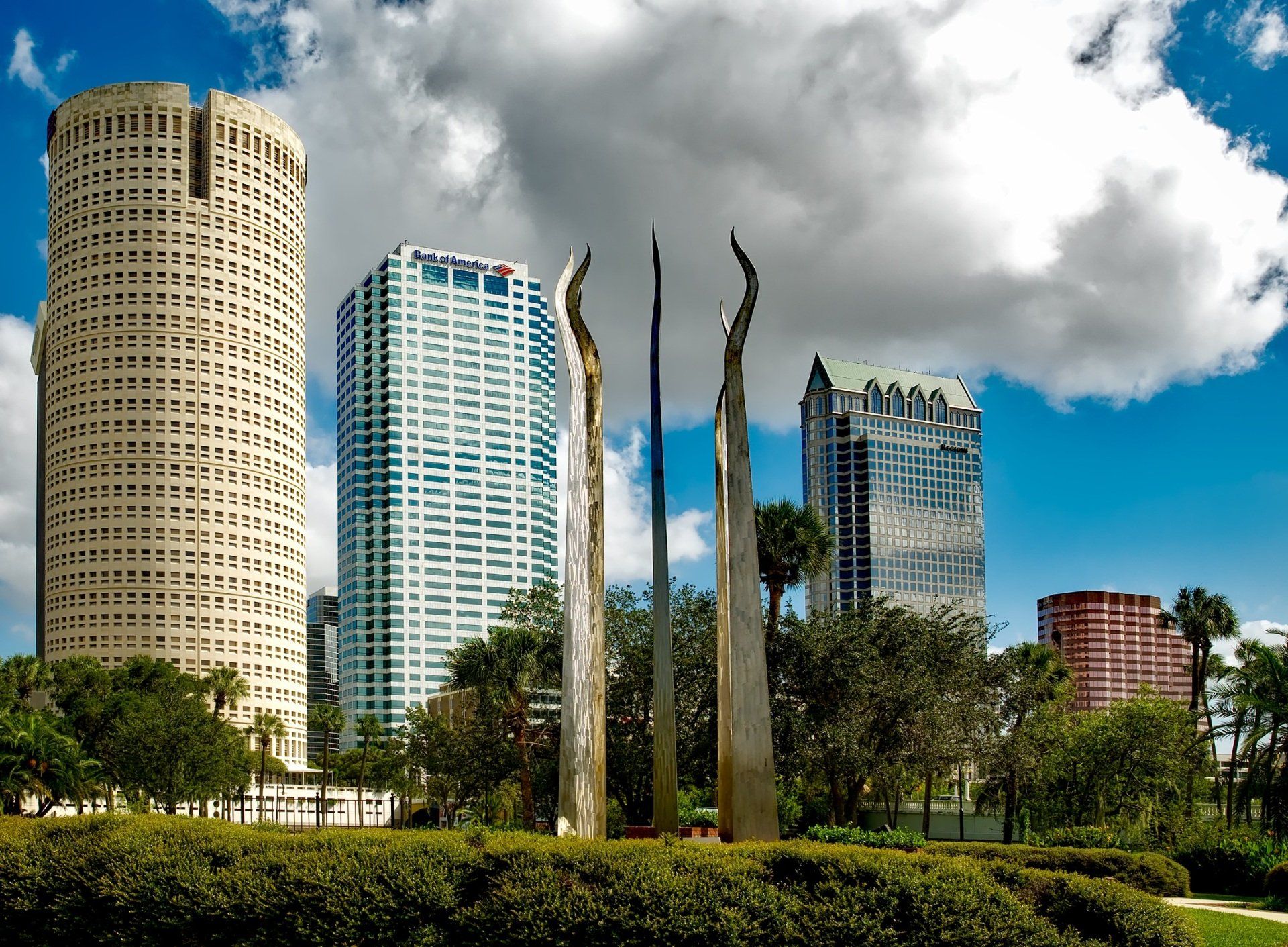
The List
They took all of that and then they ranked the 10 most desired cities based on that premise in the entire United States, though. Florida happened to be, as the title suggests, five on that entire list. Some are not so surprising, and some are surprising. But I'm going to run you through that real quick and then we'll kind of move on to step two of the video. So I'm going to go from the least desirable to the most in the top 10.
So number 10 was Houston, Texas. I don't know if that surprises you. But Texas and parts of Arizona and that are benefiting a lot of the ways that Florida does in the weather, and Texas especially the climate a lot of times, the financial base and stuff. So if Florida's not chosen, then Texas is chosen a lot of times. So Houston's there.
Number nine's North Port, Sarasota. I would've thought it'd been a little bit higher, but some of these other cities are larger, so I could see that kind of thing. But North Port, Sarasota, Florida.
Orlando was number eight. They're making a push. They have some large industries, they have school systems with UCF, et cetera. And like Lake Nona's making these real modern pushes. So Orlando's getting more popular, in my opinion. It's becoming more interesting.
Cape Coral, Florida, is very much like a boater-centric town. I think more canals in Cape Coral than in Venice, ItalDallas, Texas is number six. Dallas is becoming in a lot of ways, a lot of what makes Sarasota and Tampa so popular. Dallas has a lot of that going on right now. So I know a lot of people are moving there. It's a lot more affordable than parts of Florida. Tampa, Florida's number five. y. A lot is going on there, but that is below Sarasota and above Naples.
Phoenix, Arizona, to that point, is number four. And then Las Vegas is number three. So Phoenix and Las Vegas. So I think a lot of people, in my opinion, like the Washington State, California, don't want to make the whole trek. I've had a lot of clients I've worked with who they went to Arizona first and regretted it and then came to Florida, but it was closer at that first exit where Florida seemed like obviously a corner of the country.
Sacramento, California was number two. I'm assuming Sacramento, California, I would assume the majority has to be interstate. Like they're already there, they're already in California. Unless people are hopping from Washington State or maybe job-related. But I could see them moving from other cities they like less in California to Sacramento. And then number one was Miami, Florida in a big way. It was more than double Houston, Texas. That surprised me because yeah, that one surprised me. I know Miami's popular. The one thought would be the Western United States. Florida's always been popular for New Jersey, New York, Washington, D.C., Illinois, and a lot of Canada. But what COVID created, in my opinion, was a lot of California, Seattle-ish of the world came to Florida a lot more than they were, where a lot of them were going to Texas before. And I'm wondering if some of the cities in California relate a little bit more to Miami because of all that it has going on and it's very coastal. So Miami's number one.
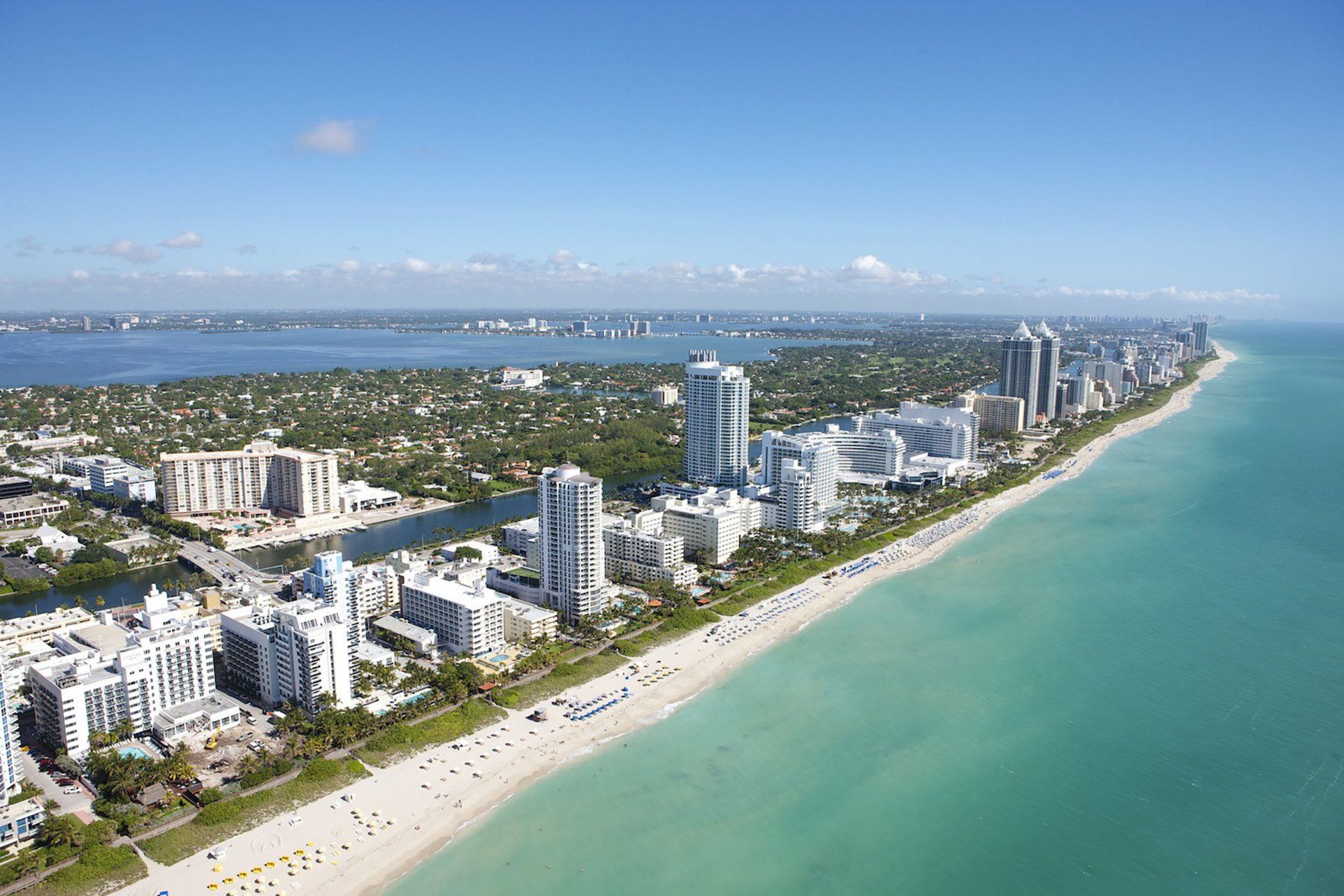
Now with that being said, I want to mix it up. So I could run you through a study like I did. This is already on the internet. I can add context based on my opinion here and there. But I want to do something a little different. So with the Miami being number one ran me down a little bit of a lane where I was already ruminating on this other idea. So let me take you through a thought exercise and then I'm going to give you some additional information based on this experiment, more or less.
So here's the scenario. It was created by me. Overarching, this is my opinion, this when I have said it, this is my opinion, my thoughts, but here's the thought exercise to work through. So say something happened and you can only move to one place. You do not have the option. It has to be one metro. You have to base your foundation there. And you want it to be the most long-term, viable, stable, interesting, crash-proof-ish housing-wise. And you can only move to one place. You got to fast-forward one step. And say that you're already in Florida. This is a Florida exercise. There's a Florida hat on this whole thing. So it's not anywhere in the entire United States. It has to be Florida. And then let me throw you some weighted factors of what if I was running like a mathematical study on this, which I did not, this is in my head, but if I was, what I would add to the argument of what are the criteria. Geography, one. No particular order potential but geography could be number one. Number two would be economics and industry. Number three would be a variety of life stages. So could you stay in the same metro for all the different life stages, because you can only live in one place for eternity in this exercise? And number four would be more proof cases of following the money. Smart people put their money behind something to potentially show you what's going to happen next. So that is this pseudo experiment that I'm creating. And what I want to do is I'm going to give you an actual ranking. I don't rank a lot of things in actual order. I make lists, but usually, it's hard to rank because it's so opinionated, but I'm going to give you an actual ranking. If you had to pin me against a wall and say pick, I'm going to give you a few in order of the most to the more vulnerable but still interesting on a list if you are following me on this study.
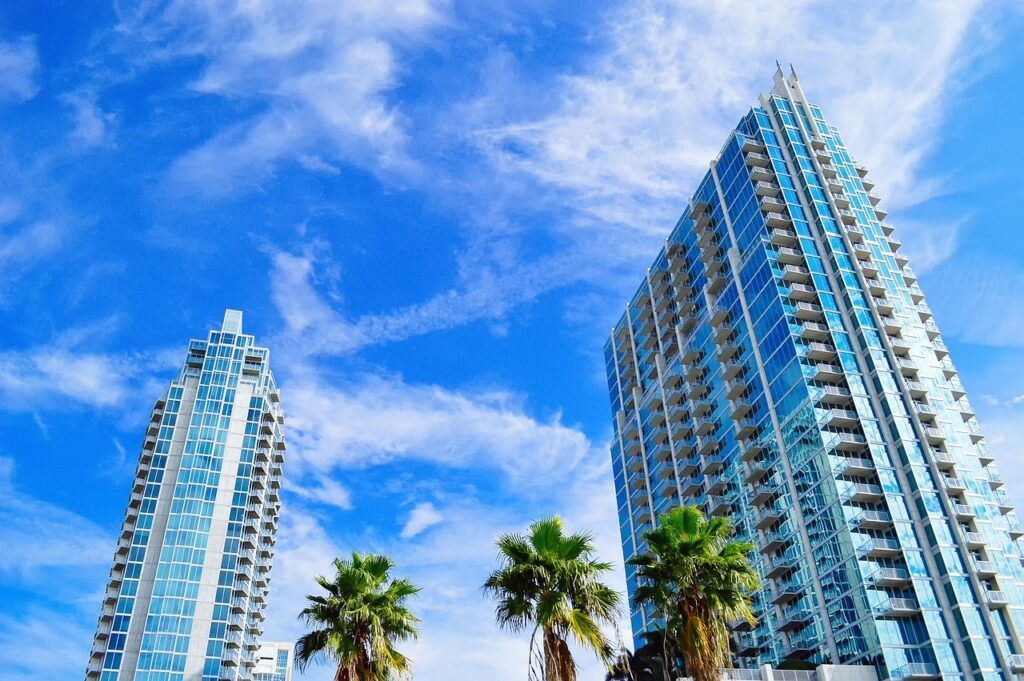
#1 Tampa, Florida
Starting off with a bang, number one overall on this list, I'm going with Tampa Bay, Florida's metro. So hear me out on this. This is the way I thought through this. So geography, number one. So I view as if you had to pick one spot in the state to live forever, I want it to be coastal because you're already in Florida and I want it to be the most central version of the coast where if I had to be somewhere and I could access the other stuff, I would place this foundation. I think Southwest Florida by far the best location in the state. I mean, you have central proximity to the other surroundings, so you're very close to all the action that's going on, but you're not on any fringe, because I think a fringe is vulnerable, central proximity is good. I like the Gulf waters a little better. This nook of the gun in Florida and the shape and the wife's tails or whatever it may be, seems to get less overall hurricane impact than a lot of other parts of the state. All these things I like. And then this takes me to number two on the industry and economics part. Why not all of Southwest Florida would be equal and Tampa would rise in this capacity is because I think what you need, in my personal opinion, if you wanted the most kind of crash-proof idea, is you need a reason people need to be in a city, not just want to be there. Because you need an economics reason of why they have to be in the city, why the pay in the city would equal the housing in the city, in some capacity it levels out. Where a Naples, for instance, a lot of the money could be end of work career money. It could be money that was made in other states and moved there. So it's like a higher priced city to live in that also doesn't rely on its own economics to support it, which is fragile to me.
If something happened, say you got relocated in Naples and you worked for, Chico's, I think, is there, the clothing place. And what if that job didn't work out and you worked at their corporate headquarters? There's not five Chico's behind it. There's not five competitors that are based in that city. So you don't have enough industry, where I think that's one thing that makes Tampa really up and good location, but it makes it more industrial. And then you also have an education base. I think it's work and education. So you have University of South Florida's headquarters in Temple Terrace, you have Tampa University. And so you have a strong backing as far as students coming there and maybe not leaving.
And then Tampa has some of the most open jobs at any given point in the entire state of Florida. It's the third largest city in Florida. So it's a commercial hub of sorts. You have some large industry, you have the cruise stuff, you have the defense, a lot of defense industry. You have MacDill Air Force Base, which is a large employer. Electronic manufacturing is huge. Tech data. Jabil. They're recruiting entrepreneurs out the wazoo. The river district and all the progressive things they're doing around downtown and the river and the urban districts of Tampa. So you got a lot going as far as it's becoming in vogue. So we did geography, industry. Number three would be variety of life stage. I think this one's very interesting. So take my scenario for instance. So I grew up in Sarasota. We moved there when I was four from Maryland. So I was there my whole childhood, went to high school there. And I left for college, like most do in Sarasota. Well, I didn't come back until I was older than 30 years old because of life stage. So I left for school and I stayed away for work. And where I ended up was Tampa because I worked in finance and economics and I wanted options. And I mean, I liked the hustle bustle and all that kind of stuff, but it really was, I wanted guaranteed stability in a guarantee that I had a fighting shot because there was enough organizations where it is competitive, but I did have a shot because it wasn't just everyone going for one job, basically. So I skipped all these life stages, young, young married, young married one kid, before I thought Sarasota was viable for me at the time. So this variety, I think you could span the whole end of the spectrum from high school to college to young professional to first suburban house all the way to retirement here. Because you have the orientation of this city with three counties, of the metro with the three counties, you have the coastal element, and you have a very big variety of suburbs.
So I can't get into all this in this video, but if you just walk the life stages with me for a second. So you're a young professional, you have North Hyde Park, you have Channelside, you have a lot of mixed use spaces where work and play is more blended. It's like senior version of college basically. And then maybe you have a young kid, you don't want to move to the suburbs yet, and you have Hyde Park proper, Beach Park, you have Old Northeast in St. Petersburg, you have Seminole Heights, Tampa Heights. So still urban, but maybe a little bit more family style house.
You get into the suburbs, maybe you're 29 and you need more house. Maybe you have three kids. Maybe you work from home and you can commute. So you can go east of Brandon, Riverview, Apollo Beach. You can go north to Wesley Chapel, Tampa Palms, Zephyrhills, Land o' Lakes, can get a lot of stuff out there. And then unique about Tampa Bay because it's so far inland, that you can go west as well and still not quite be to the coast yet and have Westchase and Carrollwood and Northdale. So you just have such a variety. And then you go to one step further and you go to retirement, you have really unique places like Dunedin and you have Tierra Verde, you parts of St. Pete. You have areas where it would be like dropping like a mini Sarasota or mini Naples in, but you don't have to leave the total metro. And that's what I mean by variety of life stage if you had to pick one is that you can reinvent where you are in your life many times. And if you weren't allowed to leave, a lot of other places could not satiate that need.
And then my last point as my fourth, follow the money. And I always think it's interesting, regardless if you think I'm full of BS or you don't know who to listen to, who to trust, if you follow what smart people with a lot of money are doing with their money, what Jeffrey Vinik is doing to Channelside with Water Street, Sparkman Wharf. You see the condominium developers that are coming to downtown. You see the lagoon communities that they're building in Wesley Chapel and Wimauma and Ruskin and San Antonio and these areas where they're trying to satiate the need of you have everything but the coast, which makes the suburbs more viable and self-sustaining on their own.
That stuff to me is always an indicator. It's the same builders that are in the game, Poltis parent company, you have David Weekley, Taylor Morrison, these guys know stuff in advance. Starbucks is built, Chipotle pops up next to it, Verizon pops up next to it. These things are well planned. And they kind of have an idea of how many people are in a metro and what it needs. And if you see that stuff coming, it usually comes in waves and it's a good indicator that they at least think that this metro is the one. So that's why a really wordy way of why I'm ranking Tampa Bay number one. But that'll set the precipice of everything post Tampa Bay might be lacking a little bit more weight in one of the four categories, but still interesting in their own outright.
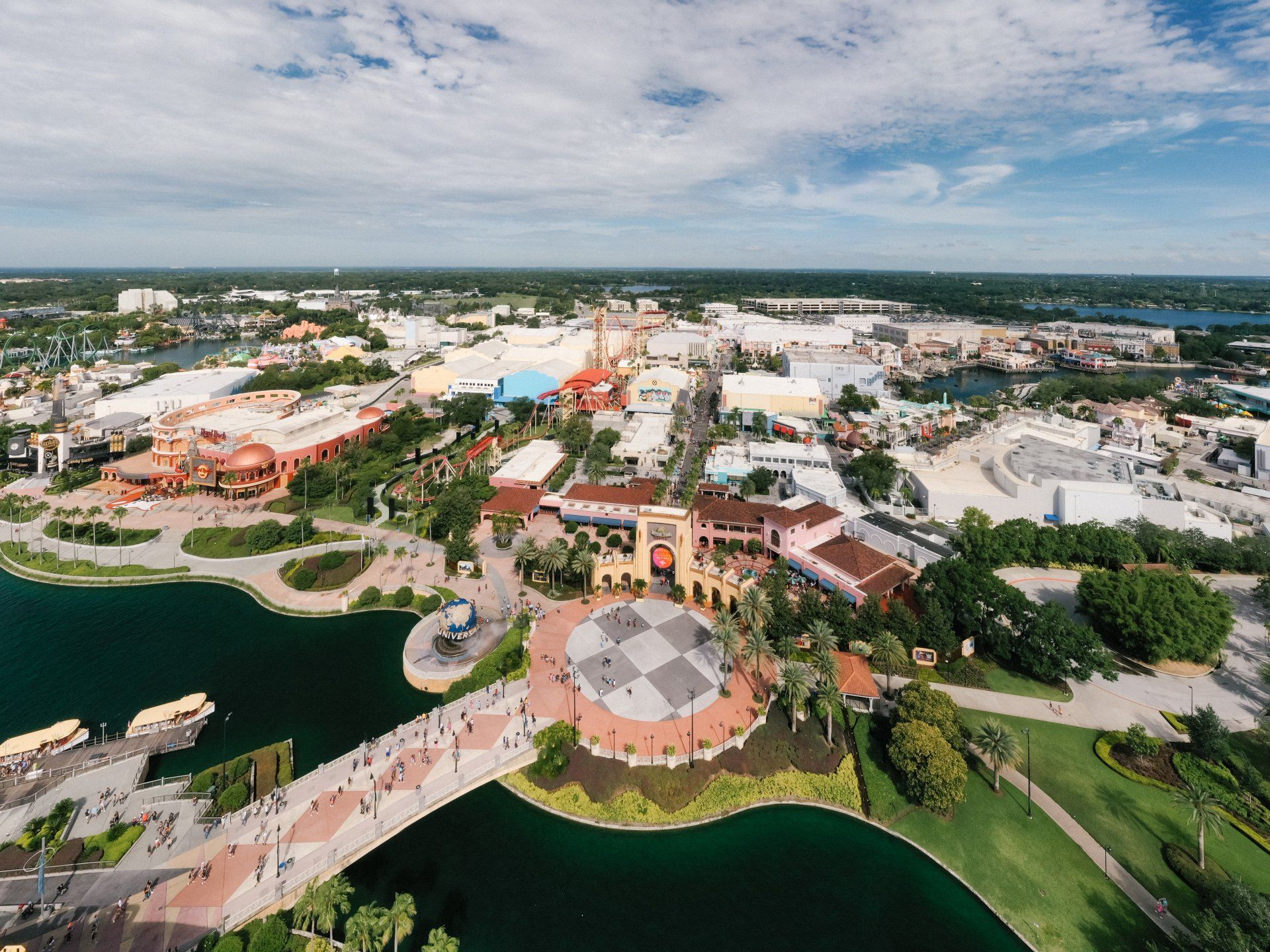
#2 Orlando, Florida
So now that you got a really deep lay of the land, number two on this list is Orlando, Florida. So Orlando's metro, the reason I'm going with this, and again, remember that we're only going on these four weighted factors.
So geography is number one. I think Orlando takes a knock because my premise is Southwest Florida is the best location. This gets you more inland but not that much further. So I think you're coming into Florida, you do have lakes, but being that far from the coast, I think gives you an inherent kind of negative in some capacity. Now, industry and economics, I think it's right up there. I mean, it might be in certain ways more boisterous when it comes to job plus education than Tampa, but it's right in that argument. Then you have a lot of large organizations that are based there trying to come there. I mean, you do have a lot of affordability because of the sprawling nature of it. And then you have UCF, downtown Orlando is big, and you have a hustle and bustle city. So industry and economics, I think it's in there. So that's a big one for this list. I think it's right up there with Tampa. Maybe it brings you a little bit back from the negative. You losing geography.
The variety of life stage. I think it's interesting because it depends on your experience with Orlando. If you're from out of state, like a lot of folks watching this video, Orlando is Disney, Disney, Disney, toll roads and la la la. But it's such a wide area in that Orange County and surrounding area. It's so wide that you have huge suburbs, huge suburbs that are charming, family-centric suburbs. The thing with being inland in itself, I talk a lot about on this channel about go away from the water and go to the fringes and all this kind of stuff and get suburban housing, well, most of Orlando is that. So the amount of suburbs you have that can provide new construction opportunities and let people afford their first town home all the way to the family house, et cetera, in a more affordable way than the coastal towns because a lot of the coastal towns, when you go west, you hit water. This one has Lakeland to its west, you have Celebration and Kissimmee and all this kind of thing. So interesting in that.
And then the fourth one where the money is at, that kind of idea, there's some really interesting concepts. So if you haven't checked out Lake Nona, N-O-N-A, yet, really, really interesting stuff. I mean, they got these little Jetsons-style helipad things that they're going to try to do these fast commutes to Tampa. They have Disney putting a lot of their organization in this area. It's modern, it's mixed use space. I think one of the major PGA premises is there. You have a lot of sports in this town. So there's a lot of reason that it is close enough to the coast, but it's so different than like a Tampa that I think it's right in the conversation where in the same token I would knock a Jacksonville and a Miami being like, it's opposite on camera here, but being like that in the state because they're very different from each other.
But locationally, they're very much on fringes. One is as far south as you can go and one is about as far north as you can go before you hit Georgia. So I think there's just less people overall that can live in those cities. And then because of all the things that surround all of those ideas, I think Tampa and Orlando, I would rank better if I had to go to one. Tampa was closed and I had to go to another, I think I would have to go to Orlando. So that would be my number two. Let me give you one more.
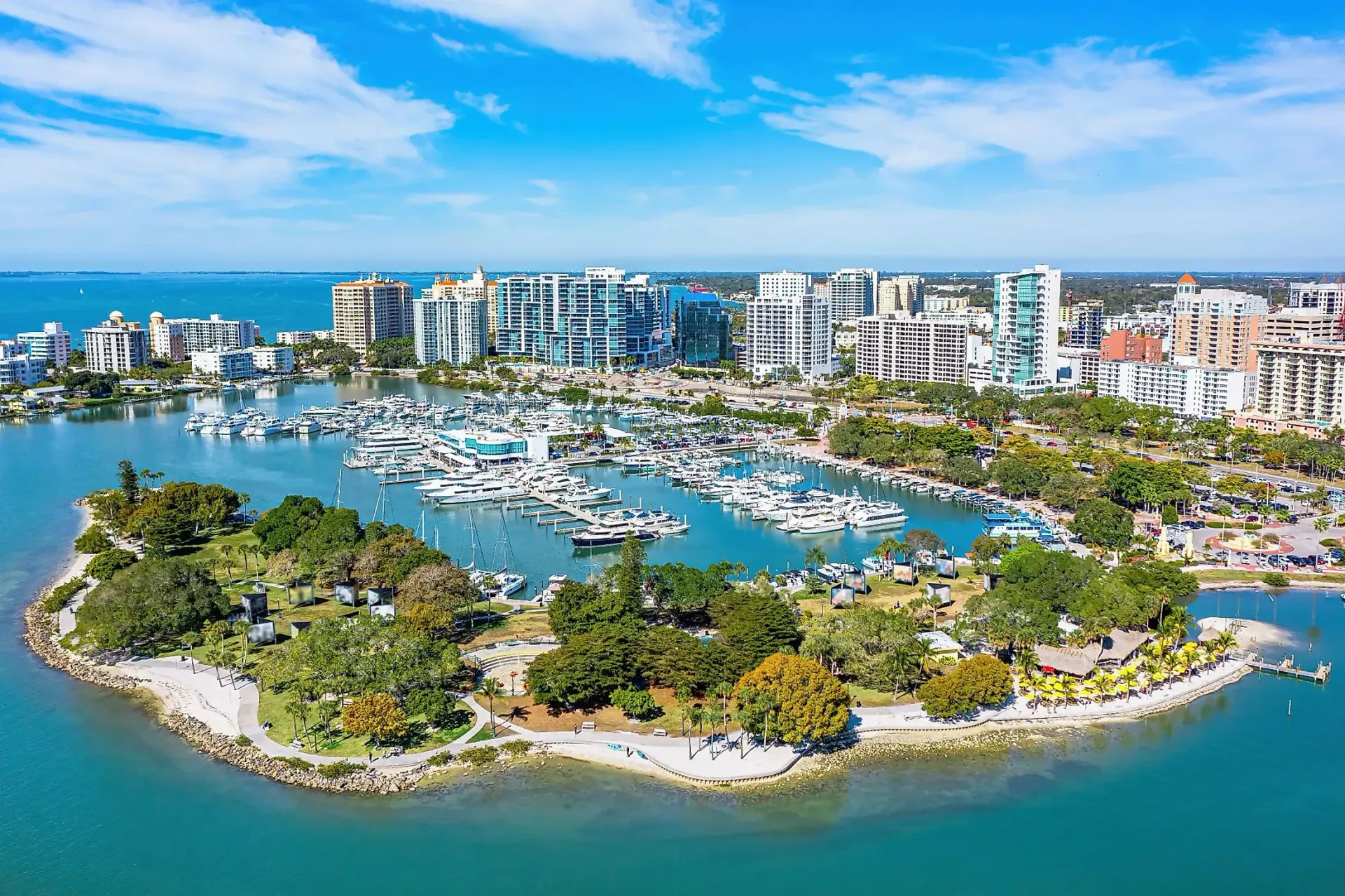
#3 Sarasota, Florida
Number three on this, it was a little bit of a struggle because I would say number one and number two aren't that far apart. But number three falls off pretty hard. And so I looked around a little bit. So my number three is the Sarasota, Florida metro. Obviously like, okay, I am standing here now, I'm biased, I get all that, but hear me out. Because I looked at seriously trying to find one that wasn't Sarasota. I would not rank Naples over Sarasota. I think it's a lesser version when it comes to this kind of study. I looked at Boca Raton, you could look at parts of the Panhandle, you could go more inland and north and to Gainesville and all that kind of stuff. But I think if you had to pick a three, I think Sarasota wins. And so this is the way that I'm kind of rolling through the study.
Geography, number one, I think Southwest Florida, yes. And Sarasota's a better geography than both Naples and both Tampa, in my opinion. There's nothing really above Tampa Bay. And Sarasota sits you 45 minutes to St. Pete, one hour to Tampa's airport, hour and a half to Fort Myers, two hours to Naples, Marco Island, Sanibel, Captiva, three and a half to Boca Raton, three and a half to West Palm. These are guesstimate. It's similar to Miami. There's a ferry down in Fort Myers that takes you to the Keys. Florida, Jacksonville, Ponte Vedra, St. Augustine, Ponte Vedra, five and a half, six to Savannah, Georgia. So really nice proximity. So maybe the best in the state. I would argue that.
Number two though is where we really start to drop. So industry and economics. This one takes a big knock. That's why I'm saying it falls off far. Sarasota, based on these other cities, is not a place that you would move to necessarily for work. Amazing town if you're independent in any capacity because it doesn't have all that hustle bustle that a lot of the other cities do that rely on work. I mean, there is traffic, but the downtown isn't work based. So it's just very pleasant as far as walkability and stuff because it's mostly hospitality based. The commutes are bad, but no one's really trying to get to certain work employers. And so it's different in that capacity, that's why it is pleasant, because you don't have all those work options. It would be a scary place to be potentially because of the cost to live in the town if you weren't feeling really good about employment in another state that was stable and you made a lot of money where the perspective of Sarasota was good, because Sarasota versus other cities is expensive in the state. Sarasota versus other cities out of state, a lot of times it looks good, but it's only because of that north to south perspective. So it takes a knock there.
Number three is where it's a little bit of an enigma. It's a way smaller place than Tampa and Orlando, but as far as a city of this size, it has the number one multi-generational master plan community in the entire United States for five years in a row on its fringe, Lakewood Ranch, half Sarasota, half Manatee County, which is Sarasota's metro. You have Wellen Park, which is another huge one. Palmer Ranch is another big one. So for a relatively small place, Lakewood Ranch has over 30 neighborhoods. The oldest house was built in 1995. It has three town centers. So you do have a viable way where, again, there's a cap of perspective of price, I understand, you have a viable way where variety of life stage, it's becoming more viable for a young to young family to not young, more viable. Still a struggle. Still not that many things to do for kids. Not that many people with the median age of 28. But I could see it moving more in that direction if you had to pin someone down and say what's the third one is would you choose the location and figure it out in this kind of city? Or would you say you got to go Miami or Jacksonville is number three and four because of the industry. So there's that.
And then number four is follow the money. Sarasota is kind of the barometer for kind of a lot of this master plan development. A lot of the junior versions surround Sarasota, but they kind of start in Sarasota. But I see a lot of money pouring in with a downtown Waterside, Fruitville Commons, a lot of Canadian investors. I think people are trying to figure out how to base themselves here and invest around it. So you're getting a little bit more of that kind of stuff here too. So again, way down, I don't know how many percentage points it would be down on this kind of study versus one and two, but I would do Tampa Bay, I would do Orlando's surrounding metro, and I would do Sarasota surrounding.
Categories
Free Relocation Guides
The YouTube Channel
Watch The Latest With Adam Hancock
Each week I'll give my view on everything from the best neighborhoods around Southwest Florida and new construction communities.

One of the most unique things about our brokerage is how we view the real estate experience!
When you work with The Sunshine State Co team you get Adam, the broker, & your own dedicated agent. This formula provides clients with a full-time market researcher (aka - the best info possible), read more...
LIke Free stuff?
Florida guides, tools & more!
The absolute SMARTEST way to relocate and/or invest in the entire state of Florida. We create an abundance of original, value-based and economics-first resources to equip our clients for the real estate market ahead. Smarter buyers are more savvy buyers!
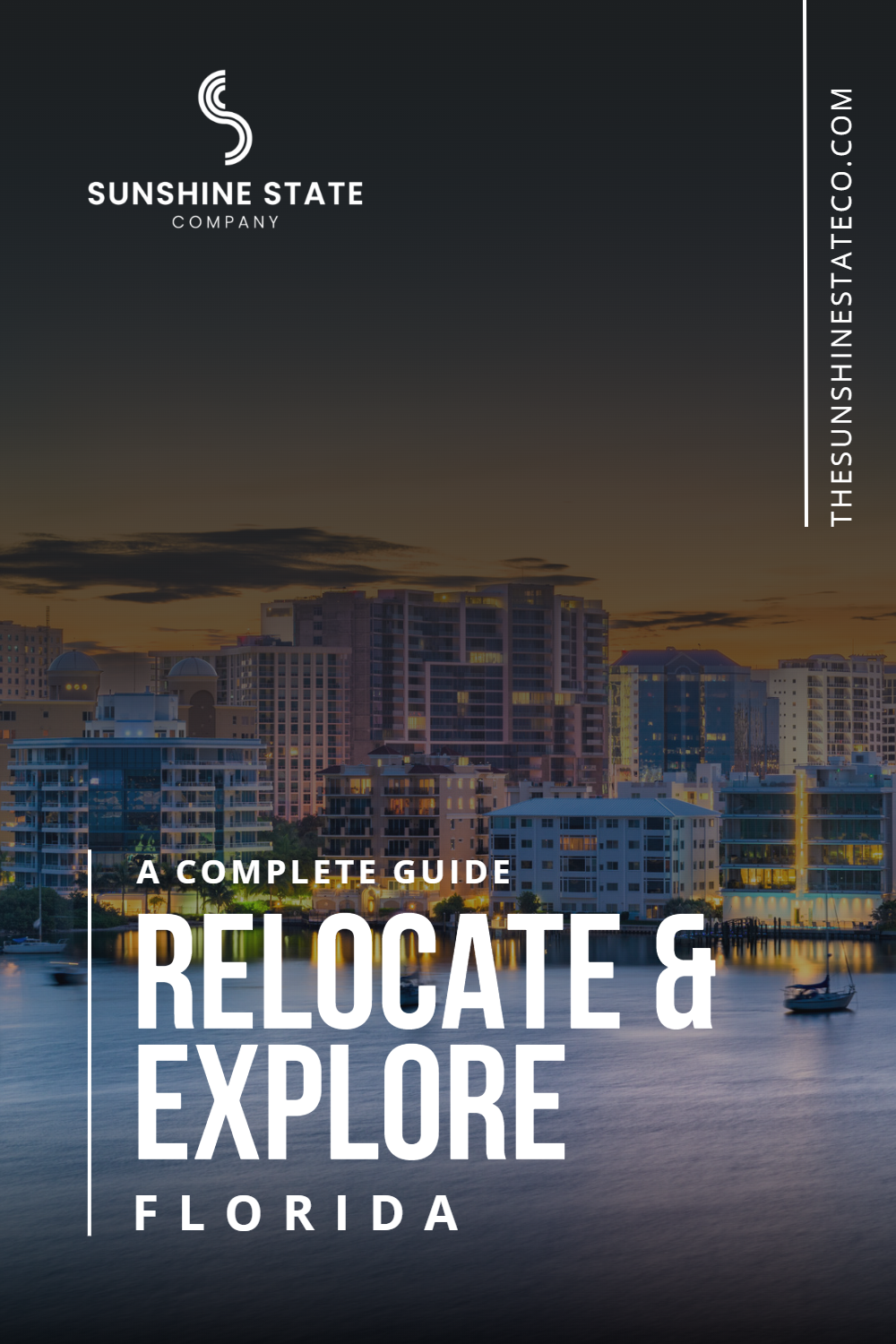
Sunshine State Company
Ready to take the next step?
Let's schedule a meting! During this initial consultation, we'll learn more about your situation and what you're seeking in a home. We'll provide advice and address any concerns you may have, in order to determine the best approach to achieving your goals. By the end of our conversation, we'll have a solid plan of action and next steps for moving forward.

